Grocery-delivering robots by Skype co-founders to be tested in London next year
Skype co-founders Janus Friis and Ahti Heinla are trialling a fleet of six-wheeled self-driving robots designed to deliver shopping to consumers' doorsteps.
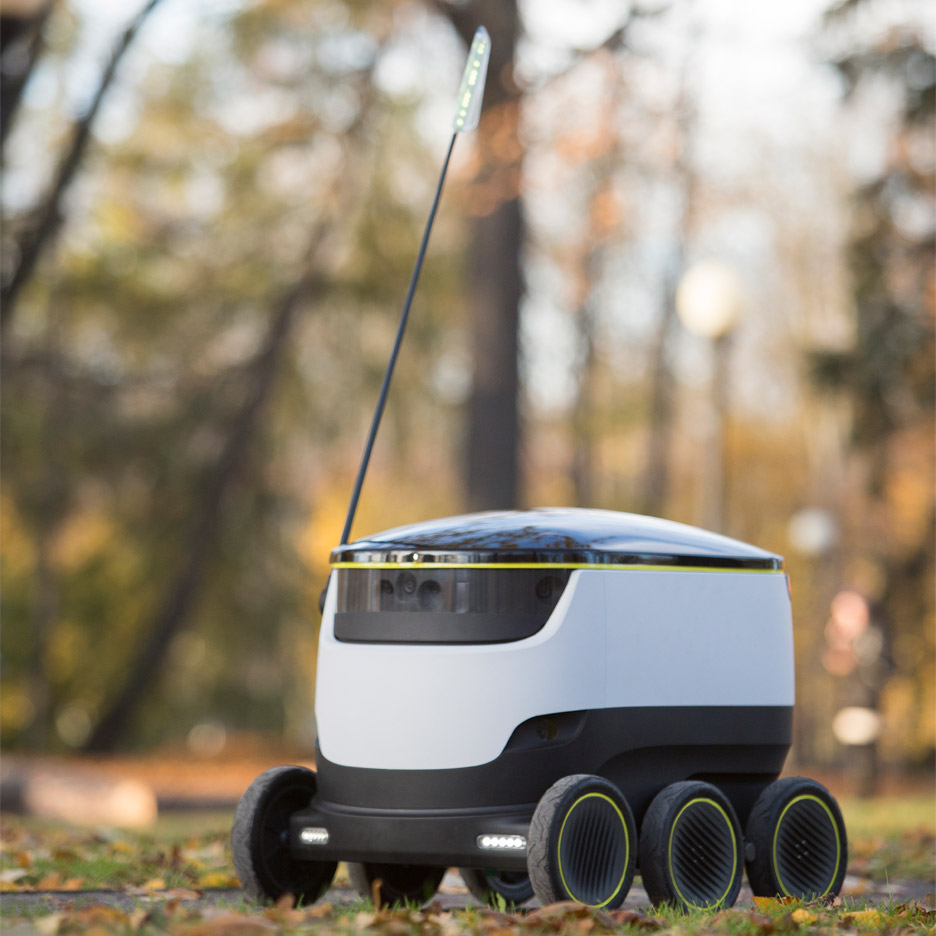
The 22-inch-tall electricity-powered vehicles are being launched by Starship Technologies – a company formed by Friis and Heinla to explore the ways "robotic platforms" could change the delivery of goods.
The car-shaped robots are designed to travel along pavements at four miles per hour, and can carry the equivalent of two grocery bags of shopping.
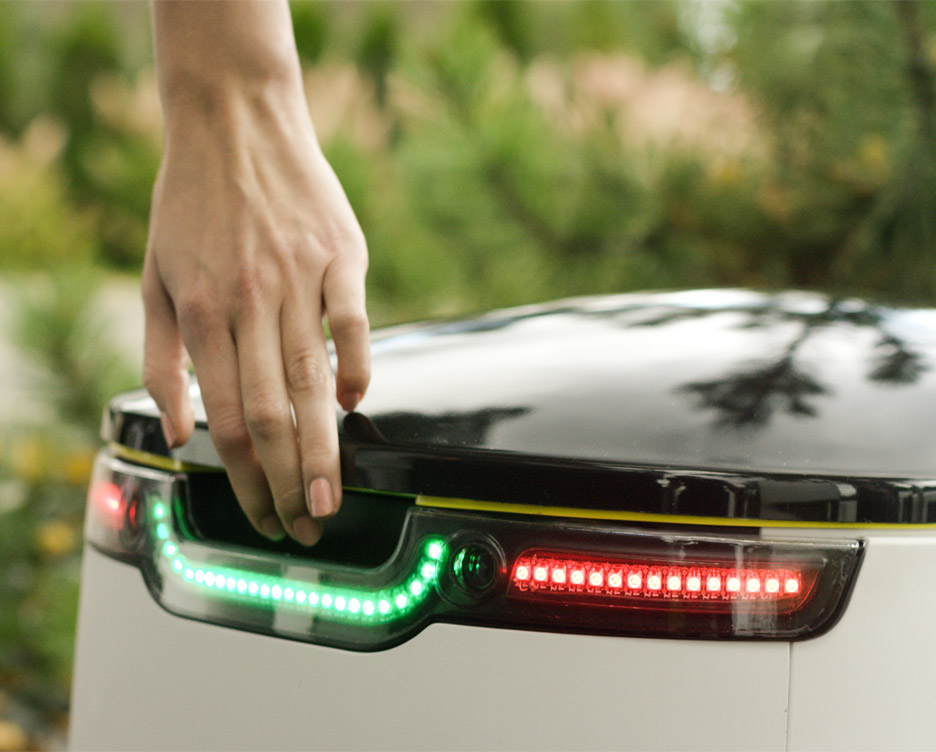
Customers can select from short delivery slots and track the robot's movements in real time through a smartphone app.
Once the delivery arrives, only the app-holder can unlock it and retrieve their goods by lifting open the hinged top of the device.
"Our vision revolves around three zeroes – zero cost, zero waiting time and zero environmental impact," said Heinla.
"We want to do to local deliveries what Skype did to telecommunications," he added.
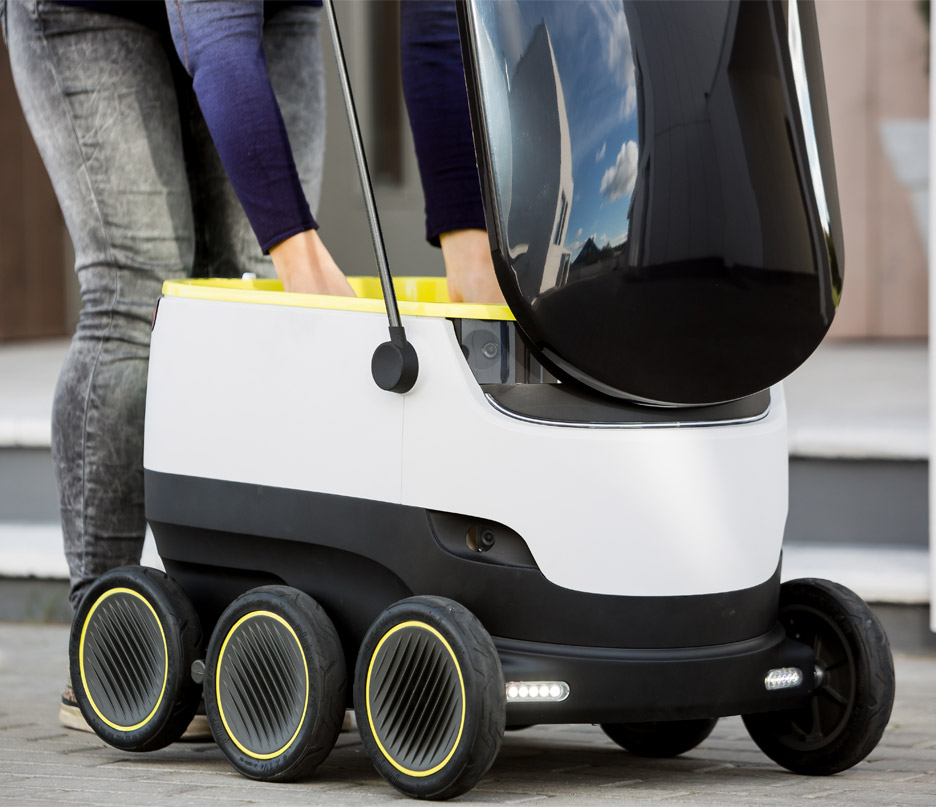
Starship Technologies has its headquarters in London, with a team of product designers in Finland and engineers in Estonia.
It has thus far only tested the robots in its offices, but has plans for a public trial in south east London next year.
Amazon has also tested the possibility of drone deliveries, with a prototype service that would use flying robots to deliver packages to customers within half an hour of ordering.
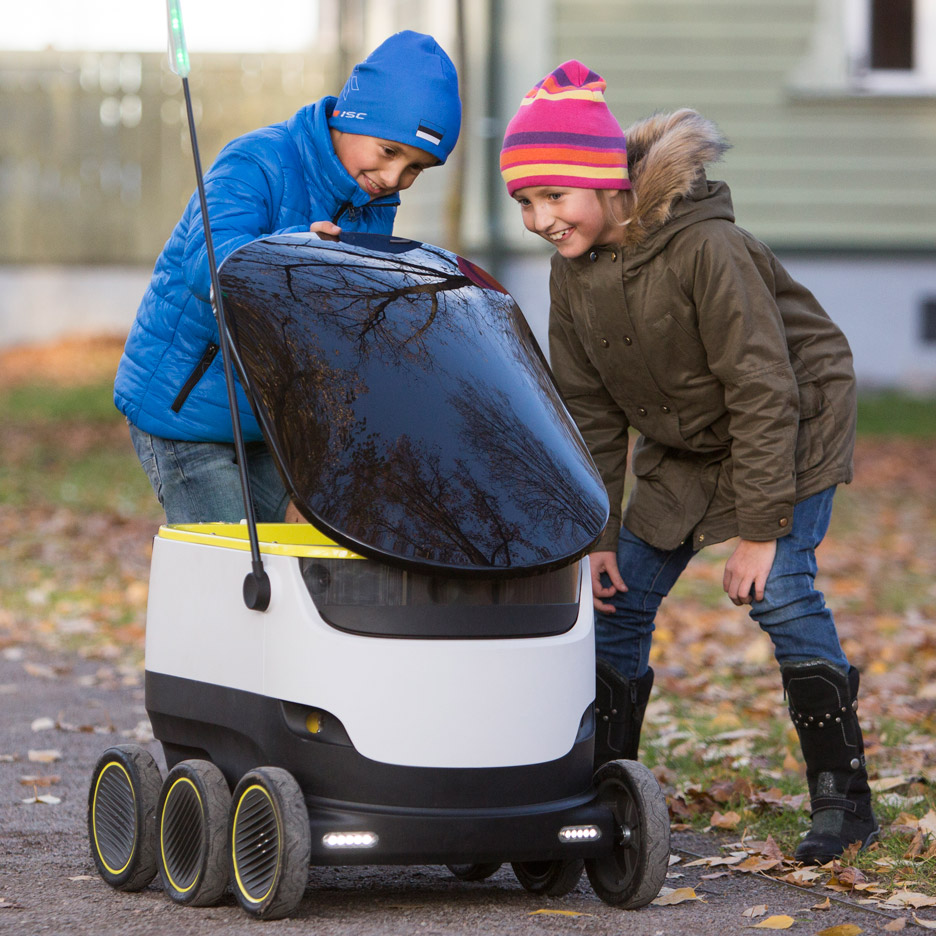
Sydney company Flirtey has already launched a service using hexacopters that are tracked via a smartphone app to deliver sturdy items such as books.
According to Starship Technologies, its robotic postmen cost ten to 15 times less than current delivery alternatives.
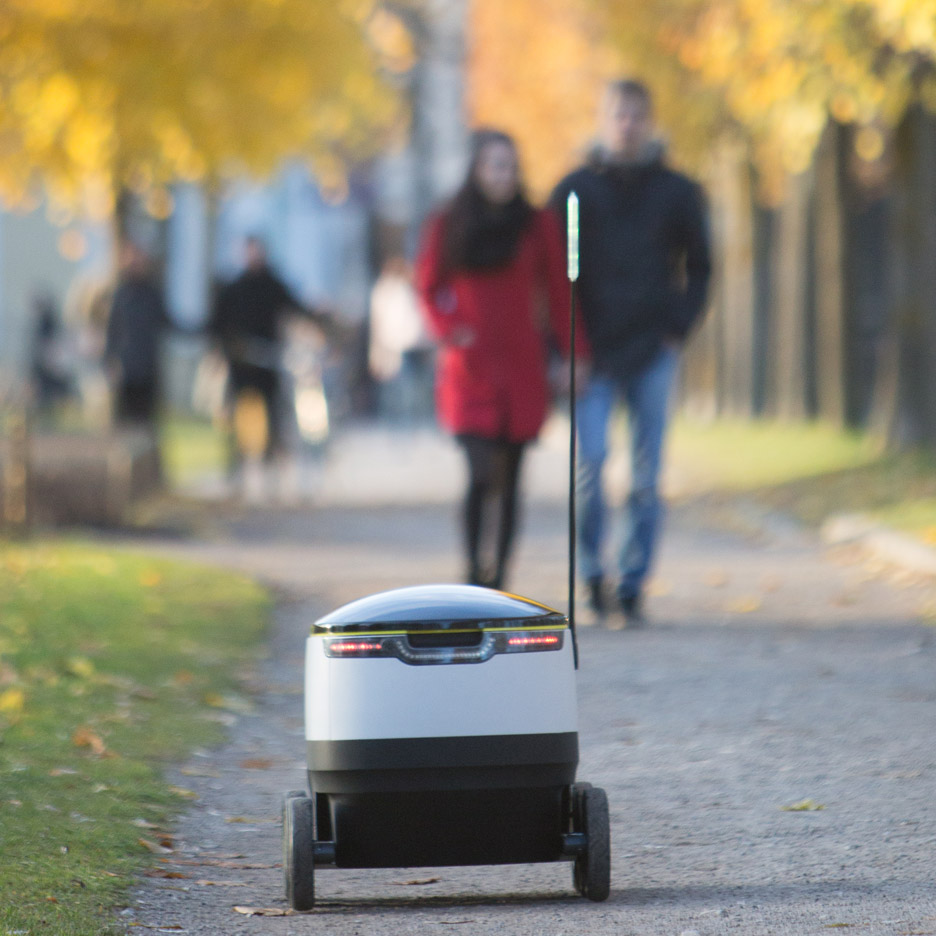
Retailers would ship items in bulk to local warehouses, where they would be collected by the robots for local delivery.
"With ecommerce continuing to grow consumers expect to have more convenient options for delivery – but at a cost that suits them," said Heinla.
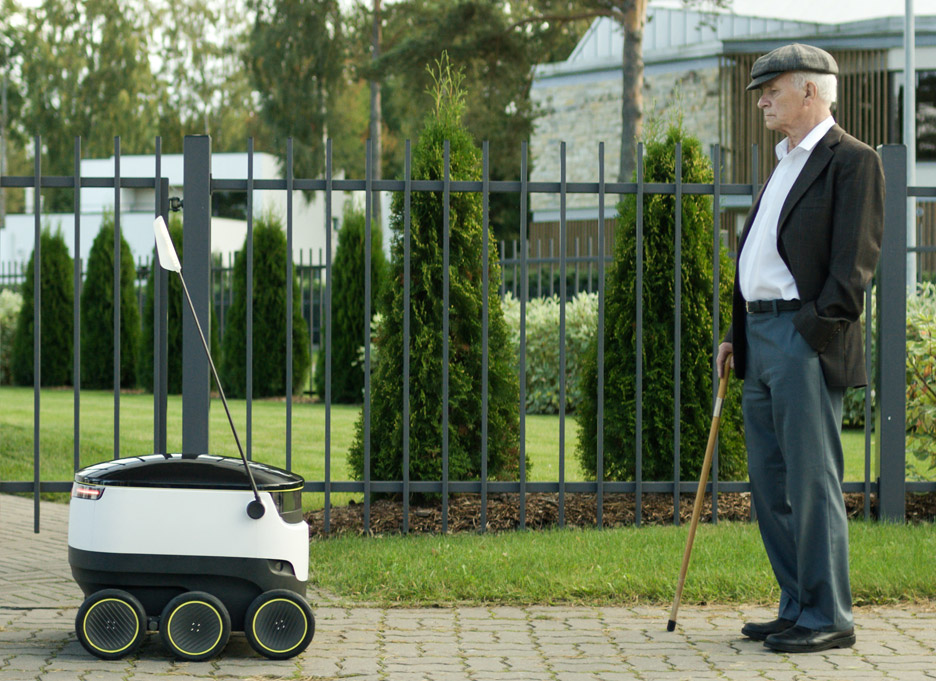
"The last few miles often amounts to the majority of the total delivery cost," he added. "Our robots are purposely designed using the technologies made affordable by mobile phones and tablets – it's fit for purpose, and allows for the cost savings to be passed on to the customer."
The devices rely on integrated navigation and obstacle avoidance software, but are also overseen remotely by human operators who can take control when required.
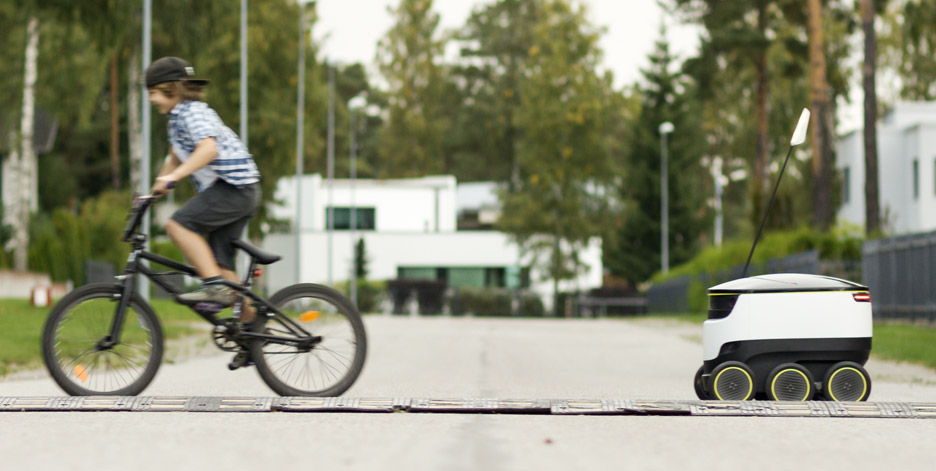
The robots can automatically alert the police if tampering is detected. Early testing showed that 80 per cent of people had no reaction to their presence.
Other companies experimenting with automated delivery services include Google, which tested its Project Wing drone system in Australia last year.